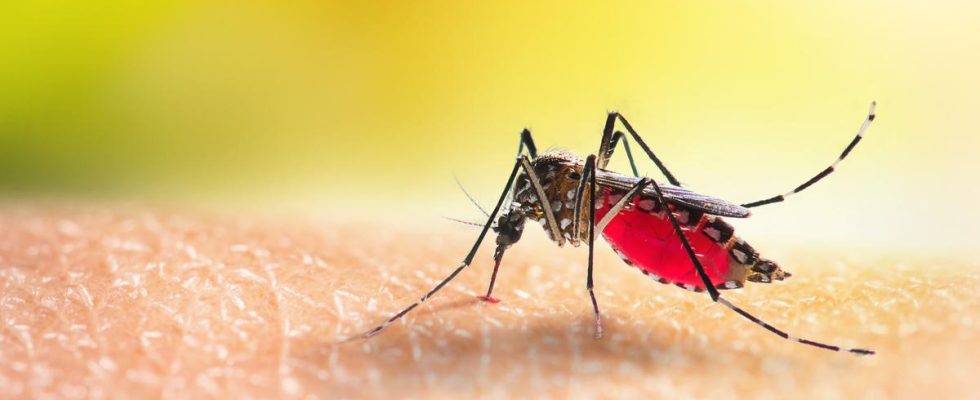A tiger mosquito. wirakorn / stock.adobe.com
In this case identified in Val-de-Marne, the person has not recently traveled to regions of the world such as the Antilles, where this virus transmitted by tiger mosquitoes is widely circulating.
An indigenous case of dengue, that is to say probably transmitted on site by a mosquito, was recorded for the first time in Île-de-France, health authorities announced on Tuesday October 17, unprecedented for a region of metropolitan France also in the north. The regional health agency (ARS) of the region confirmed in a press release that it was “first indigenous case of dengue in Île-de-France“.
The case was identified in Limeil-Brévannes (Val-de-Marne), about fifteen kilometers southeast of Paris. A “indigenous case» means that the person has not recently traveled to regions of the world, such as the Antilles, where this virus, transmitted from one person to another by tiger mosquitoes, widely circulates.
This means that the person was probably infected on site after being bitten by one of these mosquitoes, whose presence has continued to increase for almost 20 years in mainland France in a context facilitated by global warming.
Unprecedented multiplication
This logically leads to an unprecedented increase in indigenous cases of dengue fever in mainland France: 66 in 2022 and already around thirty for the current year. These cases were previously observed in southern regions, with a climate a priori more favorable to the tiger mosquito. The case mentioned by the ARS Île-de-France is therefore the first in a region so far north.
In 2022, the epidemiological situation with regard to dengue in mainland France was “exceptional», According to a report published this summer by Public Health France. Indigenous transmissions last year alone exceeded the total number of cases identified over 2010-2021 (66 cases, compared to 48). Dengue is a viral disease which results in high fever with, in rare cases, progression to a more serious form causing bleeding. Deaths, however, are very rare – around 0.01% of all cases.
Overseas, the Antilles have been in an epidemic phase since mid-August, and health authorities are monitoring profiles at risk of serious forms, particularly patients with sickle cell disease.
” data-script=”https://static.lefigaro.fr/widget-video/short-ttl/video/index.js” >

